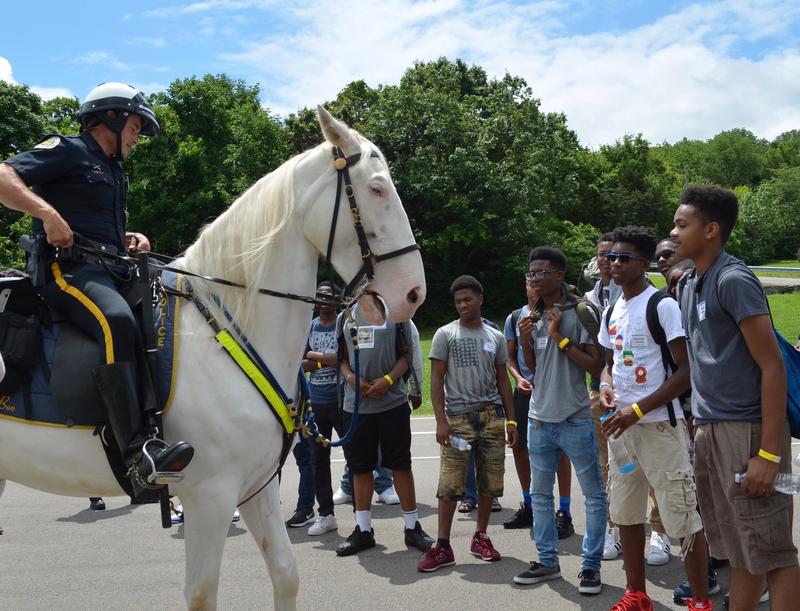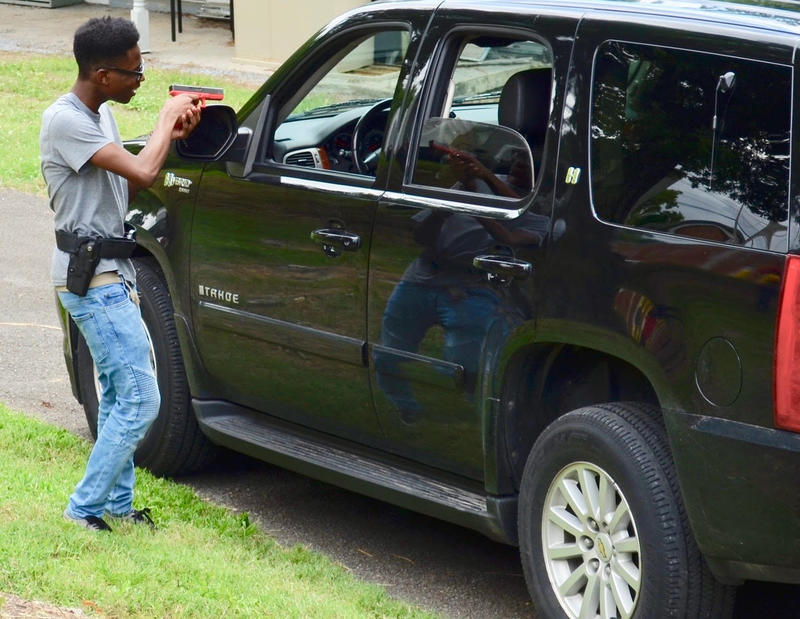With police brutality cases and racially-motivated arrests and killings by police on the rise in our country, communities are striving to find creative ways to reduce distrust between citizens of color and white police officers.
In an effort to do just this, the Nashville Metro police department recently organized its first Youth Citizen's Police Academy.
Nashville Public Radio reports that the program was created by Dwayne Greene, a cop who also happens to be a member of 100 Black Men, a non-profit dedicated to helping young black boys.
Inaugural Youth Citizen Police Academy has several of these young men considering law enforcement as a potential career. pic.twitter.com/Ssm4IVhiv9
— Metro Nashville PD (@MNPDNashville) July 14, 2017
While Greene admits that black youth are responsible for a major percentage of teen crime, he told NPR that he believes the best way to lower that percentage is to get youth interested in law enforcement.
“We use the motto at 100 Black Men, 'They can’t be what they don’t see,'” Greene said. “So this allows them to be able to capture and grasp what policing is really about and to see that it is a noble profession that they can take on.”
During the programs, the teens learned how to use SWAT equipment like ballistic shields, learned about mounted patrols and even got to run mock traffic stop exercises.
The teens got a chance to work with several different officers, all of whom did their best to show them the realities of police work.
When one teen asked an officer what the worst thing he's seen is, the officer knew right away. "Basically, the worst thing that we have to see is just what other people will do to each other.”
A mounted officer reminded the students that while horses are cool and all, a large part of his job involves cleaning up the animal's waste.

And if mental and olfactory stresses weren't enough, the teens learned at day's end that policing is a mentally taxing business as well.
At the end of the day, the teens engaged in a role-playing exercise, having to approach a motorist that they'd stopped. The stopped drivers either verbally abused the teens, pulled a firearm or moved their hands down below the window line.

The teens found that even a routine traffic stop isn't as easy as they might have imagined.
The teens each were given a gun with blanks. One participant, Jace Locke, found the person he stopped running from him.
Without thinking, Locke fired his weapon.
“You’re the one that fired about five rounds at the person running,” Captain Keith Stephens told Locke. “Now you’re going to be in court … every bit of force that we use we have to justify and articulate. Do you feel like you could sit on the stand and raise your right hand and say that you had to do that to protect the life of yourself, your partner Frank or the citizens of Nashville?”
“They disobeyed my order,” Locke responded.
“You cannot shoot just because they run. You can’t shoot them in the leg, you can’t shoot at all,” Stephens reminded him.
Being on the other side was really an eye-opening experience for Locke. At the end of the session, he said of the police, “They’re here to protect us. The majority of them really do care for us.”
That realization, Greene said, is exactly what he was hoping for when he helped to launch the program.
“Many times, people fear what they don’t understand. With bad press, bad media or incidents that occur that just ended up being bad puts a stigma on the profession of police," Greene said. "It’s unfortunate that it happened, but we have to take a stance and say, 'We need you, we want you.'"
